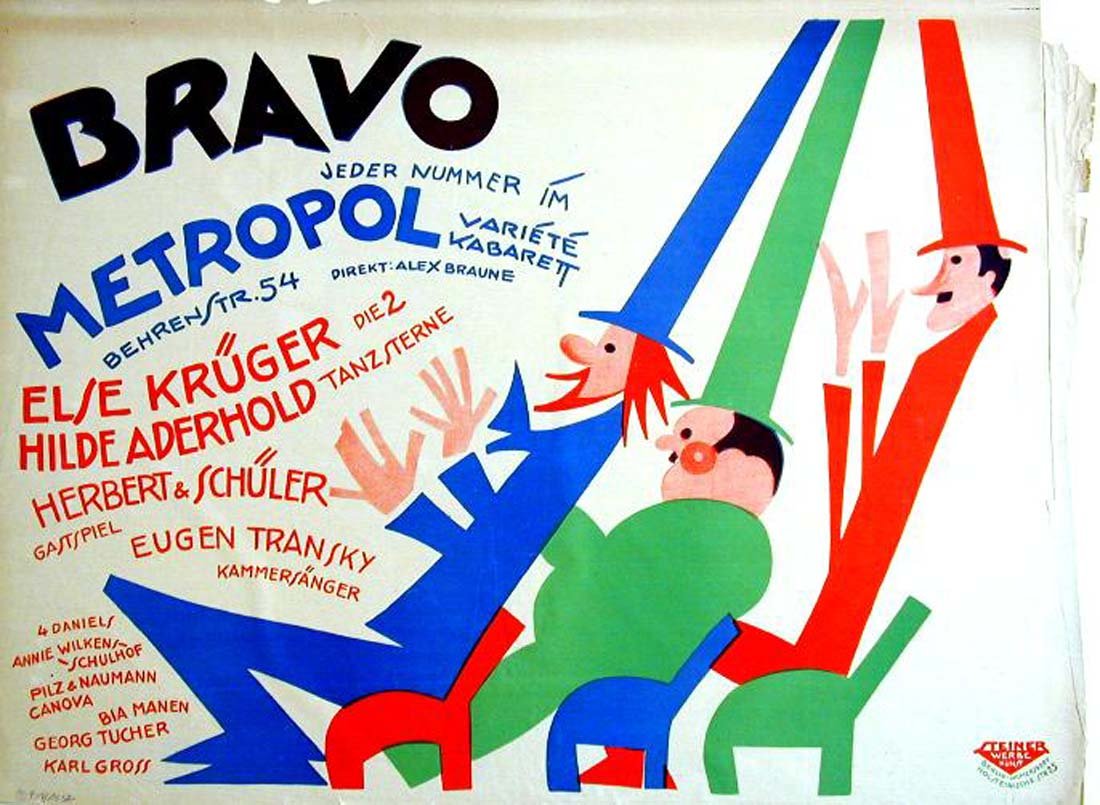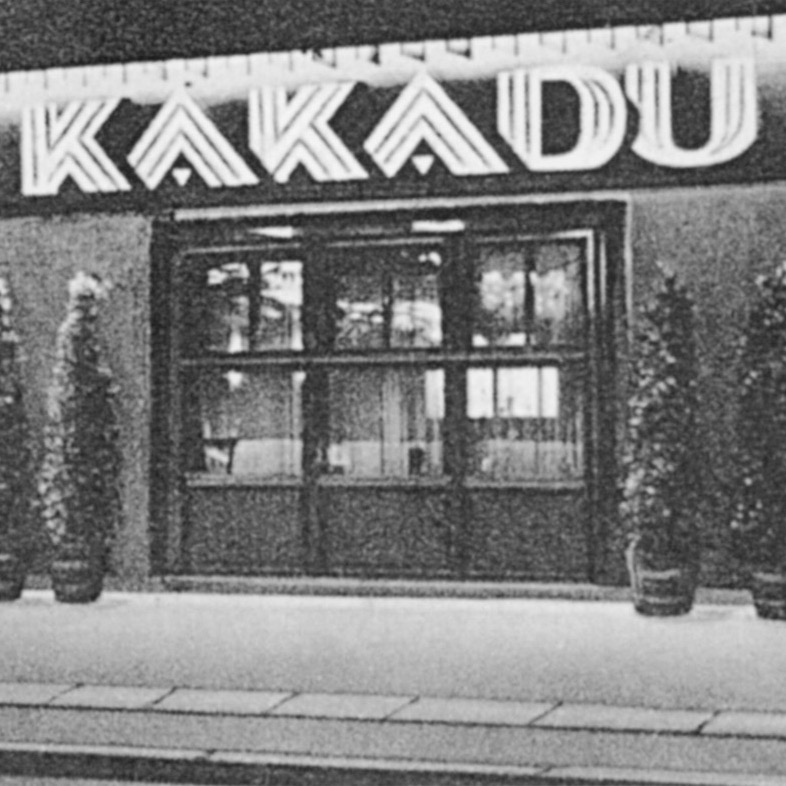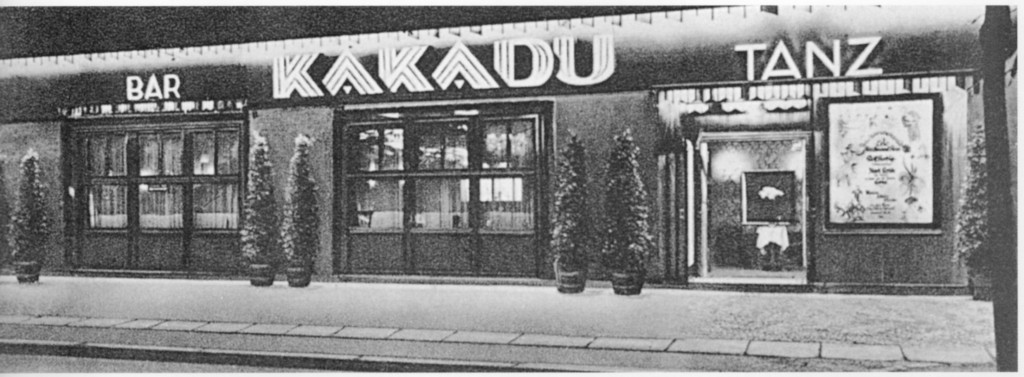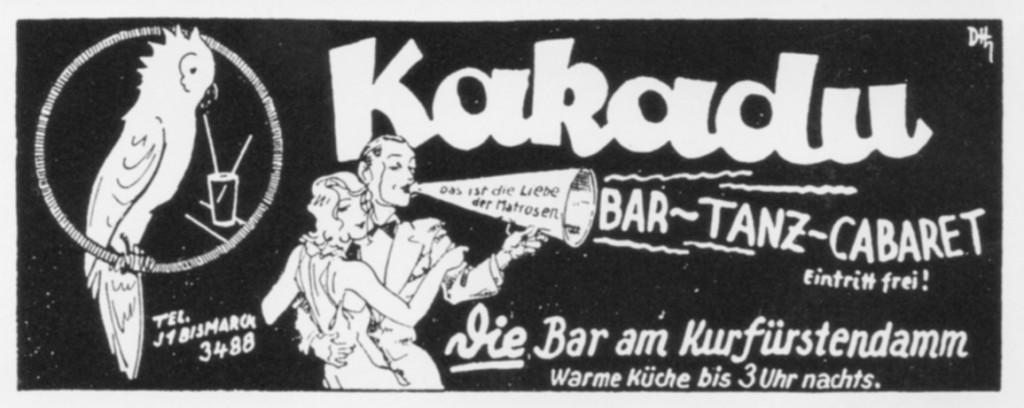

Kakadu Bar
On its completion in the late 1800s, the area around Joachimstaler Platz on the corner of the Ku’damm resembled an open-air arena with tiered bleacher-style seating for 10,000 spectators. In July 1890 it played host to Buffalo Bill’s Wild West Show, featuring 200 cowboys, indians and horses.

The Kakadu opened at the corner of Joachimstaler Straße and the Ku’damm in 1920 and consisted of a bar, a vegetarian restaurant – unique for the time – a dance floor and the Barbarina Cabaret. It was taken over by well-known cabaret entrepreneur Georg Tichauer in 1923 and became a huge success. It was open until 3am, did not charge admission and after a 1928 refurbishment boasted the world’s longest bar.
One of the more colourful stories about the venue is that above each table in the restaurant sat a cockatoo in a cage – the Kakadu of the name. When diners were ready to leave they would tap a glass on the table, which signalled the trained birds to call for the bill.

The Barbarina-Cabaret presented a five-act programme every night, with a jazz band accompanying the dancing before and after the show.
One of the highlights of the repertoire during the early 1930s was the mirror-dancing duo of Eva von Sacher-Masoch and Hede Merman. Their provocative performances played with ideas about gender and sexuality and, in response to current events, had become increasingly political. Forced to flee Berlin for Austria in 1934, Eva von Sacher-Masoch eventually married a British army officer Major Robert Glynn Faithfull and settled in the UK. They had one daughter, the 1960s pop icon Marianne Faithfull.
The Kakadu survived the early years of the National Socialist government and was a big hit during the Olympic Games in the Summer of 1936 but, like so many other establishments, was forced to close soon after.
